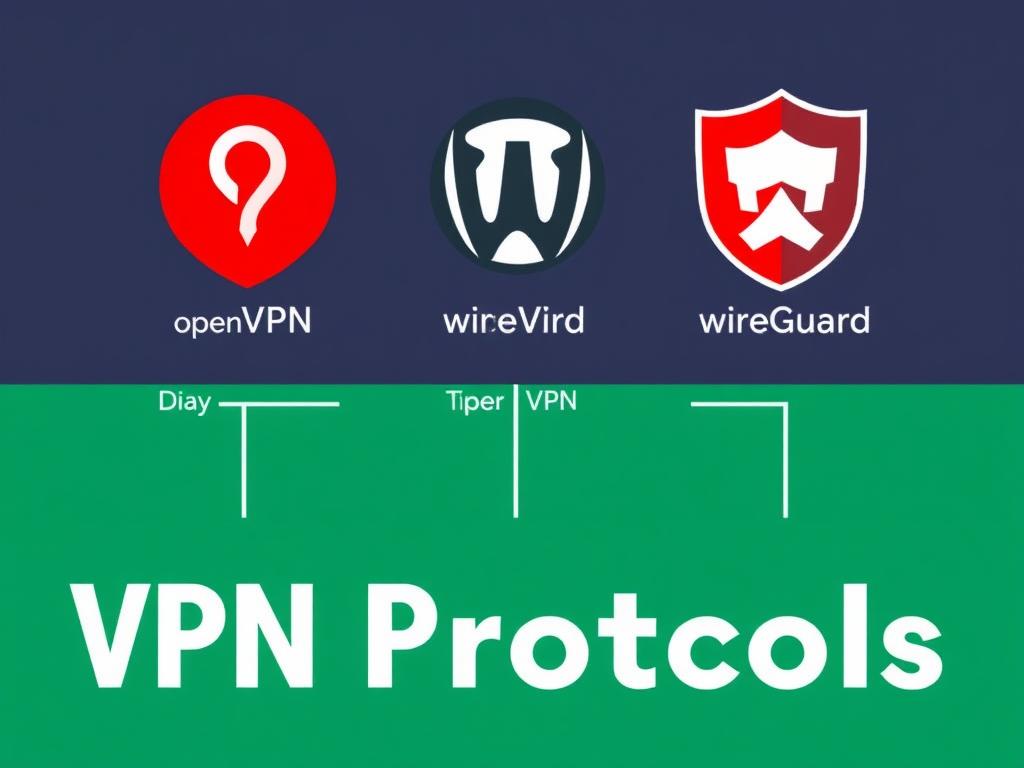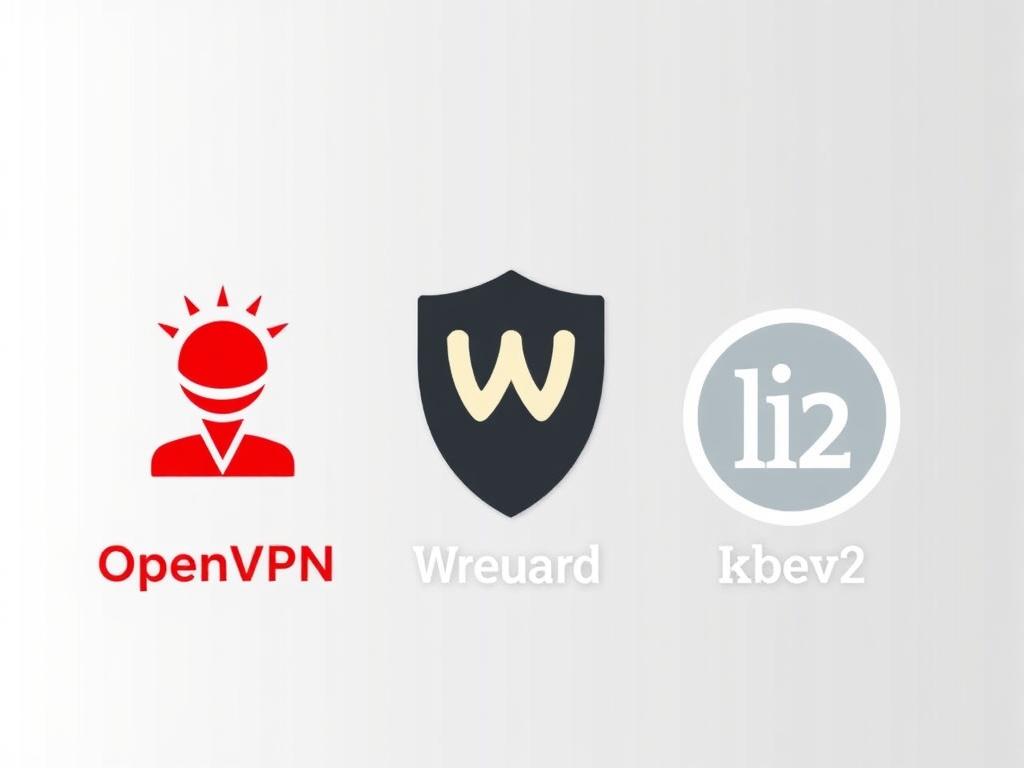If you’ve ever explored the world of virtual private networks (VPNs), you’ve probably stumbled upon the names OpenVPN, WireGuard, and IKEv2. These protocols form the backbone of how your data is securely transmitted over the internet. But what exactly are VPN protocols, and which one should you trust with your online privacy and speed? Whether you’re a casual user looking to protect yourself on public Wi-Fi or a tech enthusiast seeking the ultimate blend of security and performance, understanding these VPN protocols is key. Let’s dive into the details and see what sets OpenVPN, WireGuard, and IKEv2 apart.
What Is a VPN Protocol?
Before we compare OpenVPN, WireGuard, and IKEv2, it’s important to understand what a VPN protocol actually is. Think of it as the language or set of rules that your device and VPN server use to communicate securely. This “language” determines how your data is encrypted, how connections are established, and ultimately, how safe and fast your VPN experience is.
A good VPN protocol balances three main factors:
- Security — to keep your data private and protected
- Speed — to ensure smooth browsing, streaming, and downloads
- Compatibility — to work seamlessly across different devices and networks
Now, let’s explore each protocol individually, starting with the veteran in the game: OpenVPN.
OpenVPN: The Tried-and-True Veteran
OpenVPN has been around for a long time and is widely regarded as the gold standard for VPN security. It’s open-source, which means its code is available publicly for experts to review and improve continuously. This transparency has earned it trust, especially among security professionals.
OpenVPN offers robust encryption options including AES-256, which is considered very secure. It runs on both the Transmission Control Protocol (TCP), which is reliable but slower, and the User Datagram Protocol (UDP), which offers faster speeds but is less reliable. This flexibility makes OpenVPN adaptable for different network conditions.
However, as powerful as it is, OpenVPN is not known for blazing-fast speeds. Its codebase is relatively large and complex, leading to more CPU usage during encryption and slower connections compared to newer protocols.
Pros and Cons of OpenVPN
| Pros | Cons |
|---|---|
| Highly secure with well-audited, open-source code | Slower speeds, especially on mobile devices |
| Extremely flexible and customizable | Can be complex to configure for beginners |
| Compatible with nearly all devices and operating systems | Requires third-party apps or software in some cases |
WireGuard: The New Kid on the Block

WireGuard is the youngest among the three protocols, and it quickly gained fame for its simplicity and speed. Unlike OpenVPN, WireGuard is designed to be lean and efficient, with only about 4,000 lines of code compared to OpenVPN’s hundreds of thousands. This minimalist approach reduces the attack surface, enhances security, and significantly improves connection times and speeds.
WireGuard uses state-of-the-art cryptographic protocols and has been praised for a modern and streamlined codebase. Configuring WireGuard is straightforward, and many VPN providers have adopted it as their default protocol to offer faster, smoother services.
One thing to note, however, is that WireGuard’s approach to privacy differs slightly. It assigns static IP addresses and keeps connection metadata temporarily, which raises some privacy considerations. However, VPN providers usually implement additional measures to counterbalance this.
WireGuard’s Strengths and Weaknesses

| Strengths | Weaknesses |
|---|---|
| Lightning-fast connection speeds and low latency | Still relatively new compared to OpenVPN; fewer audits |
| Simple and easy to configure | Privacy concerns due to static IPs and metadata handling |
| Compact and secure modern cryptography | Compatibility with legacy systems can be spotty |
IKEv2: The Mobile Marvel
IKEv2, short for Internet Key Exchange version 2, is a favorite among mobile users thanks to its resilience and ability to maintain VPN connections when switching between networks, such as moving from Wi-Fi to cellular data. It’s part of the IPSec suite, which is a set of protocols designed for securing internet communications.
Known for its stability and solid performance, IKEv2 offers quick reconnection times, making it ideal for smartphones and tablets. It supports strong encryption standards and is generally faster than OpenVPN but might not match WireGuard’s speed in all cases.
Additionally, IKEv2 is well supported across many platforms, especially Microsoft and Apple devices, making it a reliable choice if you’re deeply integrated into these ecosystems.
Advantages and Disadvantages of IKEv2
| Advantages | Disadvantages |
|---|---|
| Excellent for mobile users with seamless network switching | Less customizable than OpenVPN |
| Fast and stable connections | Some older routers and firewalls may block it |
| Strong encryption with IPSec framework | Not fully open source, so less transparent |
Comparing OpenVPN, WireGuard, and IKEv2: Which One Should You Choose?

Choosing the best VPN protocol largely depends on your priorities, device type, and usage patterns. To give you a clearer overview, here’s a quick guide to help you decide based on key factors:
Security
If security is your top priority, OpenVPN and WireGuard are both excellent choices. OpenVPN offers proven security with years of rigorous testing, while WireGuard uses modern cryptographic techniques but is newer.
Speed
WireGuard is generally the fastest and most efficient, offering near-native connection performance. IKEv2 also offers high speeds, especially on mobile networks, whereas OpenVPN tends to be slower but is still reliable.
Compatibility
OpenVPN shines here with wide compatibility. IKEv2 performs best on mobile devices, particularly iOS and Windows, and WireGuard is catching up fast but might be less supported on older systems.
Ease of Use
WireGuard’s lightweight and simple configuration make it user-friendly, especially for beginners. IKEv2 is also easy to use, particularly with built-in OS support. OpenVPN, while powerful, can require more setup effort.
Summary Table: Key Features Comparison
| Feature | OpenVPN | WireGuard | IKEv2 |
|---|---|---|---|
| Security | High, mature, open-source | High, modern, open-source | High, IPSec-based |
| Speed | Moderate | Very fast | Fast |
| Best For | All-round security and compatibility | Speed and modern devices | Mobile and stability |
| Compatibility | Very broad | Good, improving | Broad, especially mobile |
| Ease of Use | Moderate | Easy | Easy |
Tips for Choosing Your VPN Protocol
If you’re still unsure about which VPN protocol to use, consider the following tips:
- For daily desktop use: OpenVPN remains a safe and solid choice.
- For streaming and gaming: WireGuard’s speed can provide a noticeable edge.
- For mobile devices: IKEv2’s resilience when switching networks is valuable.
- For privacy purists: Look for VPN providers that implement WireGuard with privacy enhancements or stick to OpenVPN.
- Try multiple protocols: Many VPN apps allow you to switch between protocols — testing them yourself can reveal the best option for your location and device.
Conclusion
In the battle of VPN protocols, OpenVPN, WireGuard, and IKEv2 each bring something unique to the table. OpenVPN offers rock-solid security and vast compatibility, making it the trusted workhorse of VPNs for years. WireGuard is the nimble newcomer that speeds up connections without sacrificing strong encryption, perfect for users craving speed and simplicity. Meanwhile, IKEv2 stands out as the go-to option for mobile users, delivering stability across networks and devices. Ultimately, the best VPN protocol for you depends on your needs — whether that’s unwavering security, lightning-fast speeds, or seamless mobile performance. By understanding how each protocol works, you can make an informed choice to browse safely, privately, and without compromise.
